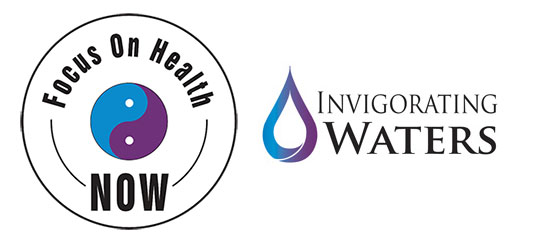According to Dr. Josh Axe, DC, DNM, CNS, a doctor of chiropractic, certified doctor of natural medicine and clinical nutritionist, his recommendations for natural treatments for dehydration symptoms are as follows:
- Drink Enough Water Daily
It’s vital to listen to your body and drink water throughout the day. Water is the best way to prevent and beat dehydration, especially during the warm summer months when we’re all prone to perspiring even more than usual.
Simply consuming the recommended eight to 10 eight-ounce glasses of water on a daily basis is usually enough for most to maintain healthy electrolyte levels. When you’re exposed to very hot temperatures, or during and after workouts, drinking more is a good idea. Factors like your diet, age, physical activity level and body size all determine how much water you need, so it’s very helpful to keep an eye out for dehydration symptoms and drink based on your level of thirst.
How do you know you’re drinking enough water? A good rule of thumb is to drink enough so you urinate at least every three to four hours. Your urine shouldn’t be dark yellow but doesn’t need to be clear either. You’re looking for a color somewhere in the middle, usually a pale yellow. For most people, this happens when they consume eight to 10 glasses daily, but again your needs might vary depending on the day.
Keep in mind that women who are pregnant or breast-feeding need additional fluids (about 10–13 glasses every day) to stay hydrated and prevent deficiencies, as do teenagers who are growing and developing faster than people of other ages. Anyone taking antibiotics, diuretics, hormonal pills, blood pressure medications and cancer treatments might also become dehydrated more easily, so extra fluids are a good idea.
- Eat More Hydrating Foods
Here are 10 of the best naturally hydrating foods to include in your diet regularly:
- Coconut water or coconut milk
- Celery
- Watermelon and other melon
- Cucumber
- Kiwi
- Bell peppers
- Citrus fruits, like oranges and grapefruit
- Carrots
- Cultured dairy foods (including yogurt, kefir and amasai)
- Pineapple
Other good sources of water from foods include bananas, grapes, bitter melon, papaya, lettuce, berries, avocado, zucchini, tomatoes and radishes. It also helps to decrease foods high in sodium, including those are packaged, canned, frozen or processed.
As you can see, foods that are hydrating tend to be vegetables and fruits. They have a high water content and also contain valuable electrolytes. There’s a reason tropical fruits like mangos and pineapple are so popular among populations living near the equator where it’s very warm. One example is those living in Costa Rica, an area that’s one of the world’s healthy blue zones. People living here have one of the longest expected life spans in the world and regularly eat hydrating foods, including tomatoes, oranges and mangos.
Need some ideas for using these hydrating foods in recipes? You can start by making creative green smoothie recipes, the perfect way to increase intake of numerous fruits and veggies all at once with little effort to keep dehydration symptoms at bay.
- Try Healthy Alternatives to Plain Water
If drinking regular water isn’t always appealing to you, you’ll be happy to know that there are other low-sugar, hydrating options. Coconut water is one of nature’s best hydrating drinks, for example. It contains many things that contribute to hydration, like potassium, amino acids, enzymes, growth factors and minerals. In fact, the chemical makeup of coconut water is similar to human blood, which makes it perfect for helping us recover from dehydration or exercise.
Other drinks that can help keep you hydrated include:
- Homemade vegetable juices
- Fruit smoothies
- Vegetable pops made from pureed and frozen fruit
- Herbal teas
- Sparkling water with fruit slices
- Warm water with fresh-squeezed lemon or lime and a little raw honey
- Hot water with fresh steeped herbs (such as ginger, peppermint or dandelion)
- Coconut kefir
- Kombucha
- Bone broth and other vegetable broths
Looking for drinks to avoid in order to help prevent dehydration and dehydration symptoms? These include alcohol, too much caffeine from coffee or tea, soda and sweetened drinks. All of these can cause increased urination, dehydration, electrolyte loss, and in the case of too much sugar inflammation and worsened symptoms.
- Hydrate During and After Exercise
During times of increased activity or exercise, we lose balance of electrolytes because we sweat more. The best way to offset this process and prevent dehydration is to consume more water than usual. Drink a glass before a workout, at least one during and one immediately after. All in all, aim for about 1.5 to 2.5 cups for shorter workouts and about three extra cups for longer workouts that last more than one hour. (4)
In the case of vigorous exercise or endurance training, it’s also beneficial to drink something with natural electrolytes, including sodium chloride or potassium chloride. The problem is that most sports drinks have tons of added sugar and synthetic flavorings, so opt for something like coconut water instead. It’s also helpful to eat a balanced meal after exercise and then continue drinking water throughout the rest of the day. If you notice yourself feeling dizzy or heavily cramping up, try drinking more fluids immediately and consuming something with electrolytes until you feel better.
- Prevent Dehydration During illnesses
If you’ve been sick, including with a fever that causes vomiting or diarrhea, or you have a gastrointestinal issue that causes these symptoms (such as inflammatory bowel diseases like Crohn’s disease), make sure to increase your water intake. Dehydration caused by illnesses can contribute to complications, including kidney stones, bladder infections, urinary tract stones and potentially even heart failure. Electrolyte drinks can be helpful during chronic vomiting or diarrhea.
 Facebook
Facebook LinkedIn
LinkedIn Instagram
Instagram YouTube
YouTube